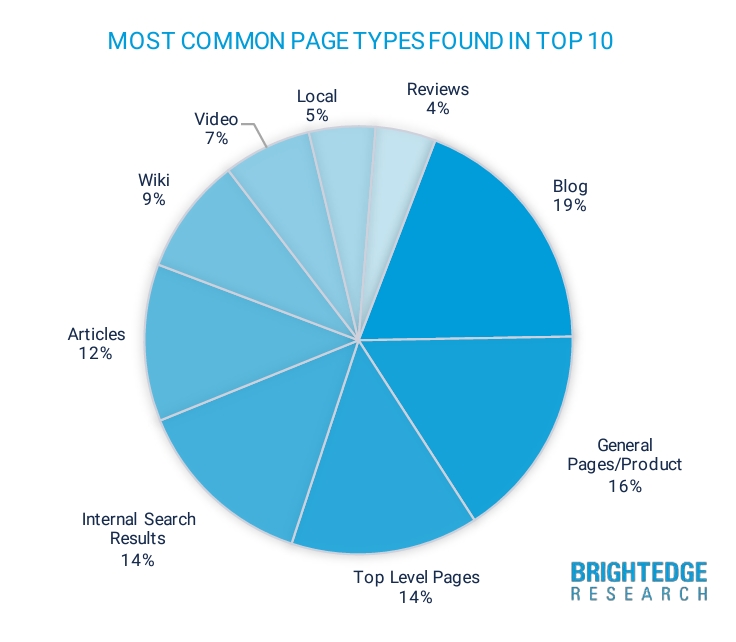Think using blogs to get to the top of the search engines is a thing of the past? Don’t be so quick to ditch your brand’s blog because a new study suggests that blog posts are the most common type of content found in the top 5 Google search results (excluding homepages).
Even with low-quality AI-generated blog content on the rise, BrightEdge says that blogs are the leading type of content returned by Google – a strong indication that blogs with well-crafted content are one of the strongest search engine optimization tools available to brands today.
About The Study
For the study, BrightEdge analyzed results for a dataset of 10,000 keywords of varying intent across 10 specific industries:
- Banking
- Insurance
- Retail
- Software
- Higher Education
- Real Estate
- Advertising and Marketing
- Manufacturing
- Travel and Hospitality
- Industrial
Using data collected during August of this year, the study then analyzed the content types of 23,785 pages ranking in the top 10 search positions.
While the leading type of page found in the top search results were homepages, these were excluded because these are essentially the default type of page Google returns when it believes a site may be relevant but it does not know which specific page to recommend.

Once homepages have been accounted for and excluded, the leading type of content in top search results was blog posts – accounting for 19% of the top 10 search results. When you narrow the focus to just the top 5 search results, that climbs to 23% of search results.
The Takeaway
Many brands have been moving away from traditional brand blogs because of a misguided notion that blogs were becoming irrelevant compared to more interactive or visual media like videos or user-generated content. This trend has only accelerated with the recent surge in lower-quality content pumped out by generative AI systems.
As Jim Yu, founder of BrightEdge and executive chairman says, however, well-maintained blogs are still an essential tool for raising the visibility of your brand and educating consumers:
“The future is not just AI – it’s AI and human symbiosis. AI can inform and assist, but human creativity, expertise and skill sets are necessary to add the voice and trust of your brand. Success lies in the fusion of AI and human expertise throughout any content creation process,”
Brands struggling to make progress in this area should likely re-evaluate their content and ensure their strategy is focused on delivering relevant, useful, and interesting information to your target market.



